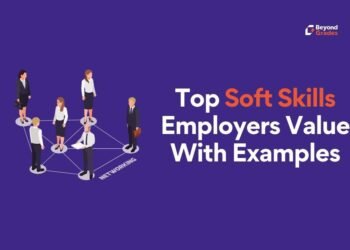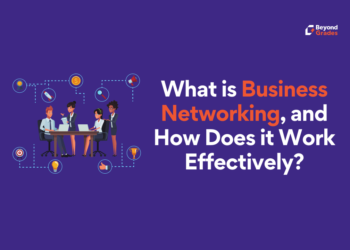[ad_1]
Competitive job skills surely play a crucial role in developing your career. Especially in today’s dynamic workplace, there are several skills that are universally desired by employers regardless of their field. In this article, we will share the top 5 skills for a job. But before that, let’s understand why job specific skills matter?
Why Job Skills Matter?
Our workplace is changing dramatically. Job seekers need to prepare themselves for the workplace of the future. Imagine yourself getting a job 10 years back and today, do you see the change? Learning in-demand job skills is an essential aspect of this preparation. Having job specific skills will help you thrive in the new reality.

Why this change?
The rapid change is the result of two significant factors:
- As a result of digitalization, not only we have become more socialized but also globally interconnected than ever before. We work remotely and work with people from diverse cultures as if they were sitting in your side cubical.
- The role of AI has significantly immersed in recent times. As a result, what we once called science fiction has become a reality for us. AI has been consistently helping us by augmenting our skills and taking over all the low-level tasks, allowing us to focus on other critical works.

Considering the change, the job skills which employers look for in their human workforce keeps on upgrading. Hence, It is essential to keep up with the in-demand job skills regardless of the field. Here are the top 10 job skills required for future jobs.
5 key skills for jobs in the future
- Critical Thinking Skills
Critical thinking is among the indemand job skills that involves decision making and problem-solving skills as well. In today’s fast-paced environment, it has become important to take the right decision after analyzing a situation and strategically implementing those decisions. In fact, Decision-making shows confidence and good judgment, and both are incredible skills regardless of the industry or field you work in.

How to develop critical thinking skill?
Active learning plays a vital role in the development of critical thinking skills in students. It can be grasped through various opportunities: cooperative educational opportunity, practicums, internships, or field experience. Furthermore, active learning puts students into real-time scenarios that they would face in their career, allowing them to test their abilities and learn from them.
2. Emotional Intelligence Skills
Emotional Intelligence or EQ is the ability to observe, understand and manage your own emotions and understand others emotions. The job skill helps you turn your intentions into actions, allowing you to make informed decisions and achieve your professional and personal goals.

Developing Emotional Intelligence job skill requires four major attributes:
Self-management is a job skill that allows you to manage your emotions in a healthy way. You can control aggressive feelings or behaviour, take initiatives and follow through on commitments.
Self-awareness allows you to recognize your actions and behaviour and how these actions affect your thought process. Knowing oneself helps in self-improvement and increases self-confidence.
Understanding others emotions and feelings are as important as understanding your own. Social awareness allows you to have empathy and understand your subordinates emotions, needs, and concerns.
Maintaining good relationships at work is a key job skill that allows you to communicate efficiently, inspire and influence others, manage conflict and work as a team. Healthy relationships at the workplace add up to team building and professional development.
Read more: How to follow up after a job interview?
3. Flexibility and Adaptability Skills
In today’s fast-paced work environment, the half-life of job skills is reducing at a drastic rate. The skills we learned today will be out of date in two or three years. Therefore, it has become necessary to adapt and learn new things constantly. In other words, being rigid towards your skillset won’t help you in the near future. Everyone needs to develop their flexibility and adaptability skills to cope up with the dynamic work environment.
4. Data Literacy Skills
In reality, many of us still struggle to understand what data literacy truly means. Just as literacy refers to the ability to read, write and think critically. Data literacy is the ability to consumes knowledge, write coherently and think critically about data.

Data is the fuel of the present industrial revolution. Hence, companies focus on data collection. However, the data explosion is worthless if the employees do not have data skills. There is a huge data skill gap in the market. Besides, not everyone needs to be a data scientist, yet every working individual should be data literate in particular. The initial step to data literacy is by becoming curious about technology, ask questions without shying out. In my opinion, It’s fair enough if you don’t know much about tech presently, keep asking yourself and your mates ‘why’ and ‘how’ for the data you use. In my opinion, data literacy will be among the key skills for a job in the future.
5. Communication & Leadership Skills
Good communication and leadership skills can help you become successful in any field. On the contrary, It has become easy to communicate with someone over text in today’s digital environment, irrespective of the grammar you use. Well! This subconsciously impacts your communication skills and reduces the quality of face-to-face communication in the workplace.

According to a survey, 95.9% of employers consider communication a key skill for the job during recruiting, while only 41.6% of candidates can efficiently demonstrate this skill.
Talking about leadership skill, It’s one of the most desired skills employers look for in a candidate. However, every leader has his way of leading the team. These leadership skills are the most preferred:
- Strategic thinking
- Focused on commitments
- People management
- Communication
- Persuasion & Influence
In today’s dynamic work environment, these were the top 5 job skills that every job seeker should look forward to learning.
[ad_2]
Source link









